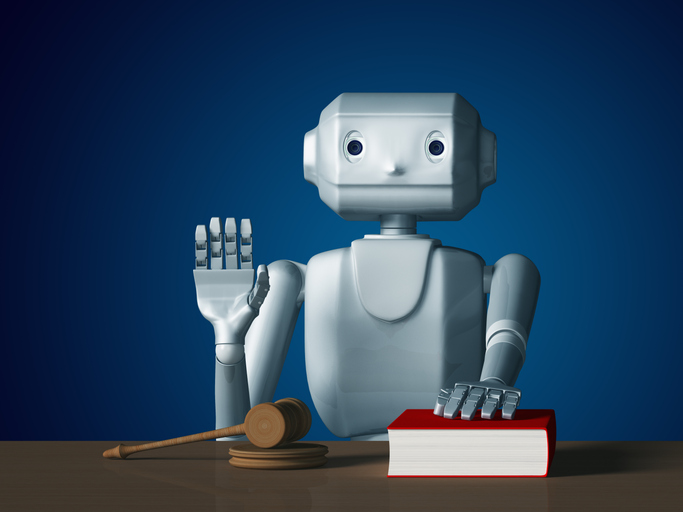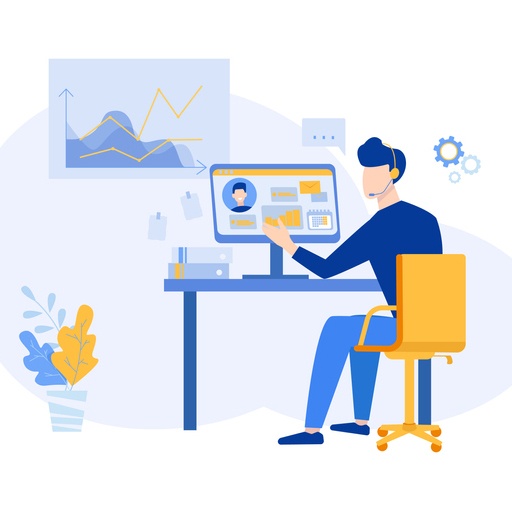What Does AI Look Like for Different AOPs?

Artificial intelligence (AI) is the buzzword of the day in many industries, from education to administration. Legal services are no exception. Many fear the introduction of tools like ChatGPT threatens jobs in the legal industry, while others hail them as support resources that can make legal work less burdensome and more efficient. So, who’s right? Has the legal industry seen this kind of AI before?
Let’s take a look at the current state of AI, its impact on law, and how its influence might differ depending on areas of practice.
Is This a New Age of AI?
As much as there’s been an uptick in the discussion around AI and the legal industry, there has been talk about AI and its threat to the industry before. The New York Times reported in April of 2023 that, a decade prior, the influx of AI tools spelled the death knell of legal work. It didn’t happen, however; despite the new ability to review, organize, and proofread documents, employment in the legal industry only grew.
The new age of AI is different, according to the Times, because lawyers are essentially “word merchants,” and new tools like ChatGPT can do much of the work typically reserved for lawyers: recognizing and analyzing words and generating text in an instant. It would seem that AI can now do what lawyers across practice areas have always done: read, analyze, and draft text.
However, this can come as a relief to many lawyers, who might suffer from what Bloomberg calls information overload: a sea of court opinions, practice guidelines, law reviews, and other materials that no one person – or team of people – could ever help to cover in an instant. It’s here that AI might be of real help; doing the research and drafting summaries while lawyers develop legal strategy and make the legal arguments.
One lawyer in the Times piece who tested a new legal practice tool that works with ChatGPT found the software was able to review and summarize 400 pages of text in a matter of minutes. Other observers called the new AI akin to a “smart paralegal” who can act in that role in a legal case.
Are There Risks?
Although the technology is innovative and exciting, it is not without its flaws. This example of artificial intelligence is still being developed and continues to have its bugs come to light. A recent case in British Columbia serves as a potential warning to lawyers who might rely on AI tools such as ChatGPT to prepare materials they will use in court.
In the case, a lawyer submitted a brief in a high-net-worth family law case. When opposing counsel tried to find the cases mentioned in the brief, they were unable to locate them. The lawyer eventually admitted she had used AI technology to prepare the brief, and claimed the technology gave her cases that did not actually exist. She apologized to the court and said she did not check to confirm that the cases were real.
In a news report about the case, a computer science professor discussed the limits of this kind of AI technology. These AI models have been trained to produce human-like text based on what the model has been shown, the professor said. The models, however, have not been trained to look for truth or accuracy in what they produce.
Opposing counsel in the British Columbia case has sued the lawyer, specifically for the time it took for them to uncover the fake cases before they were entered into the legal record.
Despite this alarming case, there’s no doubt AI is an important tool – and it’s only getting better.
What Areas of Practice Are Most Impacted By AI?
So, how does this impact different areas of legal practice?
There’s no doubt AI could impact almost every area of legal practice, but it seems to most impact those who rely heavily on significant volumes of documentary evidence and case law.
Litigation: Litigators, in everything from mergers and acquisitions to personal injury, seem liable to be heavily impacted by the new AI. This can be a lifesaver for small firms or solo practitioners who traditionally have been buried under mountains of documents by the other side. With AI tools, they can get a quick summary of what the documents contain.
Corporate law: Lawyers who analyze lengthy and detailed contracts as well as supporting evidence probably already rely on older AI summary tools that alert them to specific contractual language or areas of concern. As these new AI tools are more powerful, they have a greater ability to impact these lawyers’ practice day to day.
Criminal law: In larger criminal cases with substantial evidence, AI tools might impact how lawyers sift through and summarize that information. There might be a role for AI in helping courtroom lawyers draft opening and closing arguments, or even develop a preliminary list of witness questions.
Those who run small firms might see the new era of AI as a way to balance the playing field against larger firms or government bodies who have traditionally been able to do the grunt work of legal practice more efficiently. With AI, it might now be possible for lawyers of all stripes to represent their clients effectively. The result might be a more favorable legal landscape not only for lawyers but for the clients who depend on them to represent their interests.
Talk to an Expert on Legal Practice-Building at Martindale-Avvo
Regardless of your area of practice, Martindale-Avvo can help you achieve your practice goals. As a dynamic marketing solution specifically tailored to the legal industry, Martindale-Avvo has the experience and expertise to help you raise your practice to the next level. From search engine optimization (SEO) and pay-per-lead to advertising, Martindale-Avvo has the tools you seek. Contact us today to see what we can do for you.









